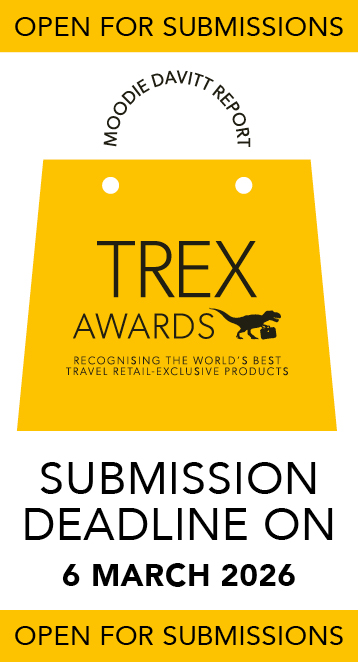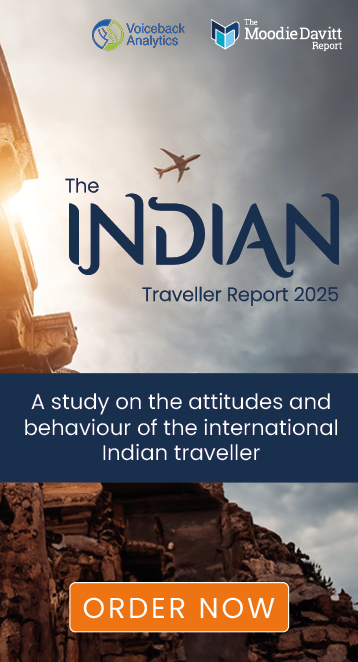ASIA PACIFIC. New research from traveller experiences and medical assistance provider Collinson conducted in partnership with CAPA – Centre for Aviation has produced a series of rich insights on the shape of travel recovery, and the issues surrounding it, in the Asia Pacific region.
Data highlights include that 31% of respondents in Asia Pacific expect travel in the region to return to pre-pandemic levels by 2023, followed by 2024 at 25%, and late 2022 with 17%.

The results come from an in-depth survey completed by 331 C-Suite executive level travel industry insiders across 64 locations in the region during April.

While the vast majority of these travel experts (89%) believe that it is safe to travel, many expressed pessimism about the industry’s recovery, whether due to the policies being put in place, wider perceptions of safety, or both.

Over half of respondents (56%) say they are ‘very concerned’ at reports of fraudulent COVID-19 test results and vaccination passports.
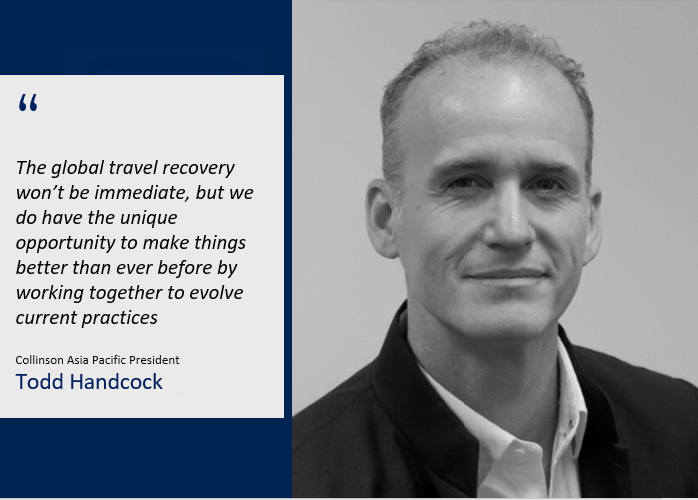
The pace of herd immunity
Collinson noted that global herd immunity is a key driver of the return to normality and yet, because of public resistance to the vaccine in certain locations, coupled with vaccine inequality, this will take a considerable amount of time.
On this front, when asked what they thought was the most plausible scenario by 2022, 30% of respondents in Asia Pacific believed herd immunity would be reached in the US, UK and a select few developed nations.
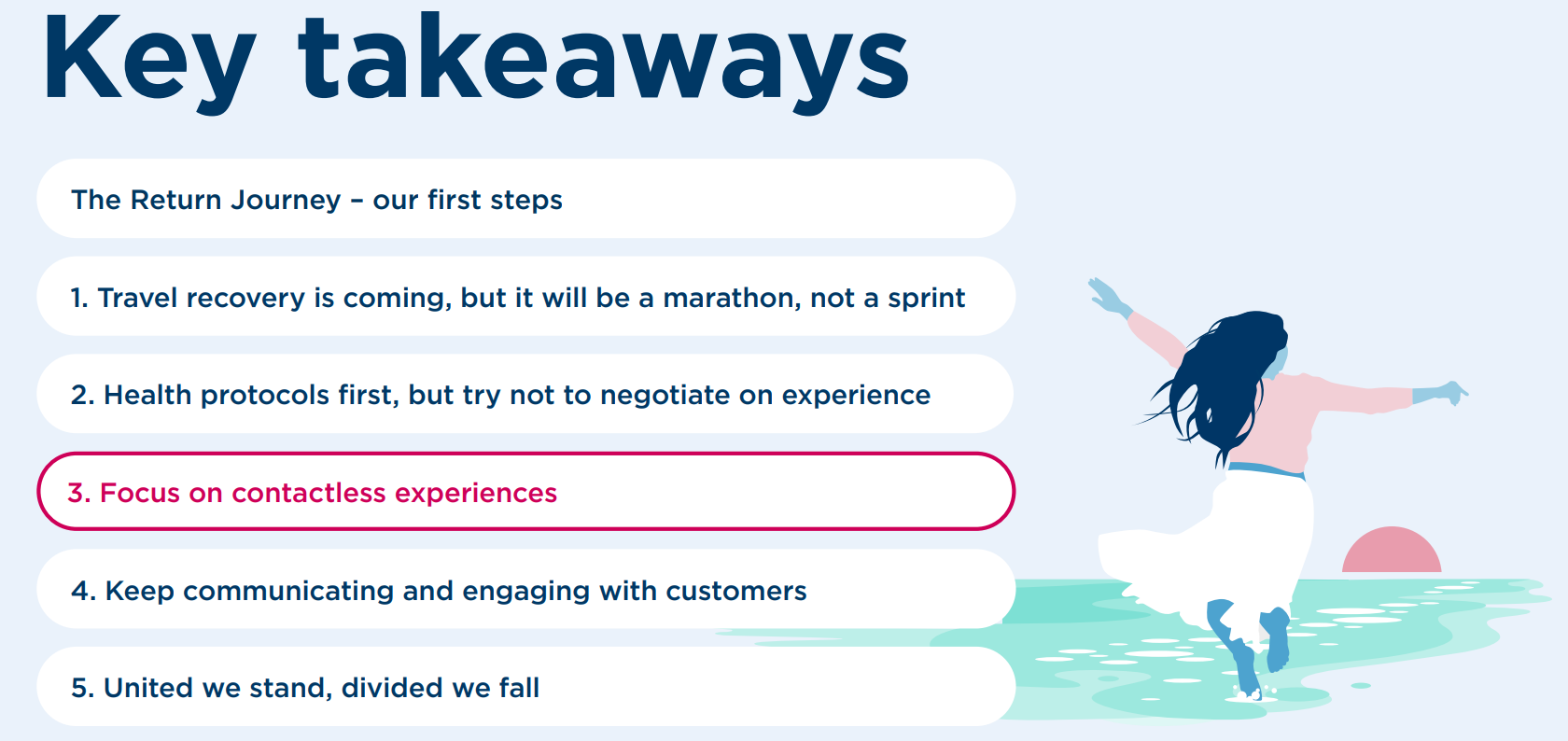
By contrast, 27% believed a handful of smaller nations would do so, with the rest of the world including the US and the UK failing to do so.
Only 16% believed that most countries in the developed world would achieve herd immunity by next year.

Leisure and shorter-haul travel to lead recovery
A high number of respondents believed that leisure travel would recover significantly faster than business travel, while in both categories, shorter-haul flights will make a faster comeback was the consensus.
When asked to select the most plausible scenario in 2022 for the recovery of leisure travel, 27% of respondents in Asia say they expect 41-60% of 2019 levels next year.
The outlook for business travel markets, meanwhile, is weaker than leisure according to the survey results. For short-haul flights, 31% expect to see 41-60% of 2019 levels next year – while 35% of respondents expect long-haul business travel next year will be only 20-40% of 2019 levels.
Despite business travel being likely to make a slower recovery than leisure travel, Collinson suggested that companies should act now to equip their employees with the necessary tools for a safe return to global travel, including robust travel-risk management policies.

Quarantine measures and testing
Most Asia Pacific respondents (51%) expect that robust testing protocols will remain key to reopening global borders until the end of 2022. Almost one-third (32%) of respondents believe such protocols will remain key for the next three years, while just 13% expect testing will be phased out in 2021 in line with the vaccine roll-out.
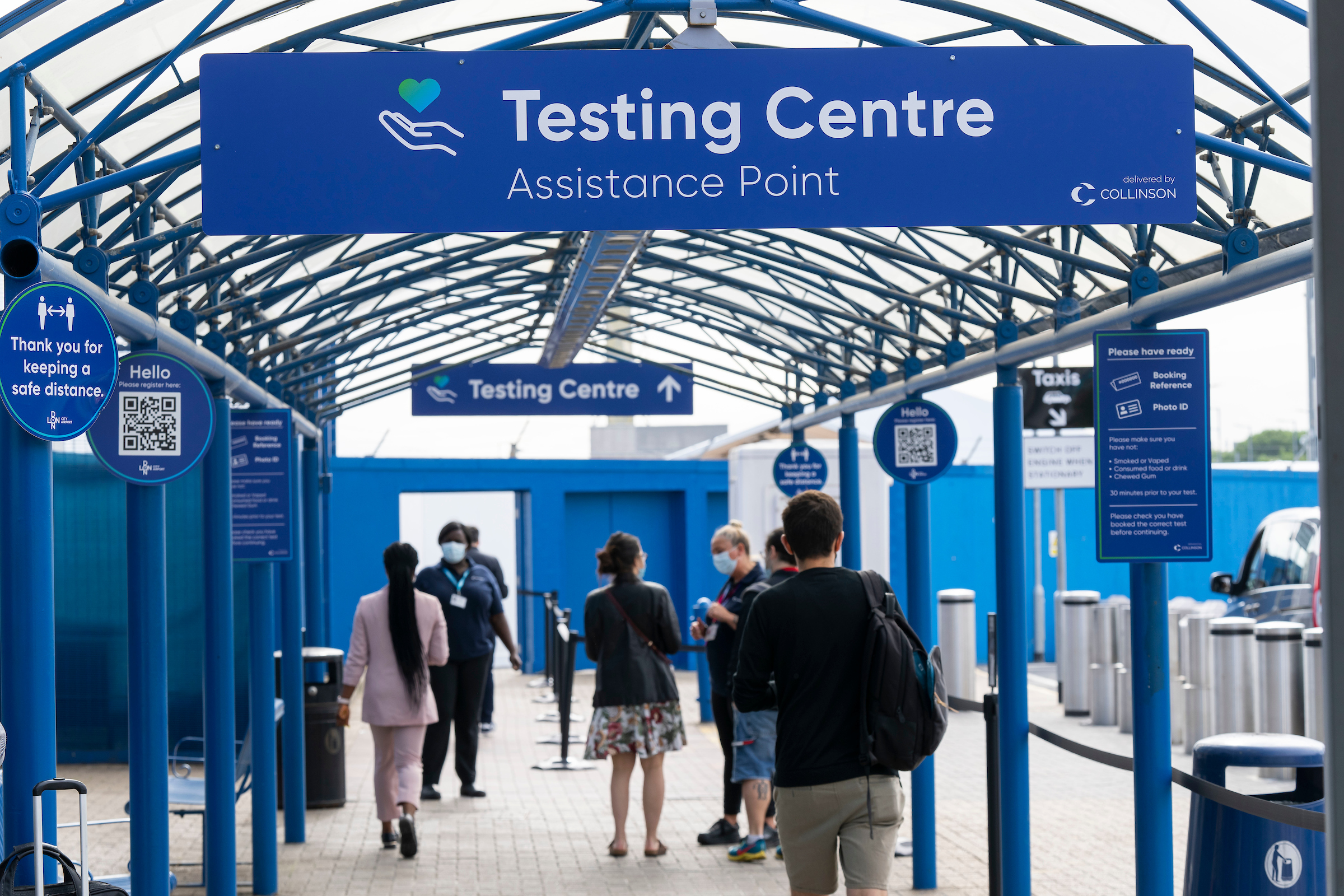
Just under half (49%) of Asia Pacific respondents believe quarantine measures will be phased out by 2022, with a further 11% expecting quarantine measures to be lifted by mid-2021. However, 30% still believe quarantine measures will remain in place beyond 2021.

Most Asia Pacific respondents (58%) expect aviation market access arrangements by governments to evolve at different rates, depending on the region/market through 2021.
Over a quarter (27%) expect aviation market access arrangement by governments to ‘remain the same until at least 2022’, while just 5% expect access arrangements to ‘substantially ease’ or even just ‘start to ease’ as we go through 2021.
It is therefore critical for governments and members of the travel ecosystem to come together and collaborate for the safe return of global travel, Collinson noted.
Vaccine passports and the fraud question
Asia Pacific respondents overwhelmingly (75%) shared the view that vaccine passports were of ‘vital importance’, as governments won’t re-open borders without them. Only 18% said they were ‘not important’, as some governments will allow access regardless of digital health documents.

A further 7% said they were ‘not relevant’ compared to other issues, such as mutual recognition of vaccines.

The majority of Asia Pacific respondents (76%) were also concerned by reports of fraudulent COVID-19 test results and vaccination passports surfacing, with only 6% saying they were ‘not concerned’.
Collinson noted that it is supporting the development of accredited testing solutions, along with Verifly, CommonPass and IATA, including the piloting of digital health passports aimed at reducing the chance of fraudulent activity – while expediting the safe return of global travel.

Collinson Asia Pacific President Todd Handcock said: “The global travel recovery won’t be immediate, but we do have the unique opportunity to make things better than ever before by working together to evolve current practices.
“This joint research with CAPA has helped shine a light on the areas that require immediate, combined focus and effort from government bodies and private organisations – particularly those in the travel ecosystem – in order to remove remaining barriers and help achieve the safe, long-term return of global travel.”
CAPA – Centre for Aviation Managing Director Derek Sadubin said: “We are delighted to be working with Collinson, a global leader in traveller experiences, to better understand how the aviation and travel market is rapidly evolving.
“Surveying the viewers of CAPA Live, now the biggest virtual aviation conference in the world, always yields fascinating insights. This is a high-level, savvy and switched-on group of aviation and travel industry professionals, so their views carry weight.”
You can download the full Collinson/CAPA Asia Pacific Travel Recovery Report here.






